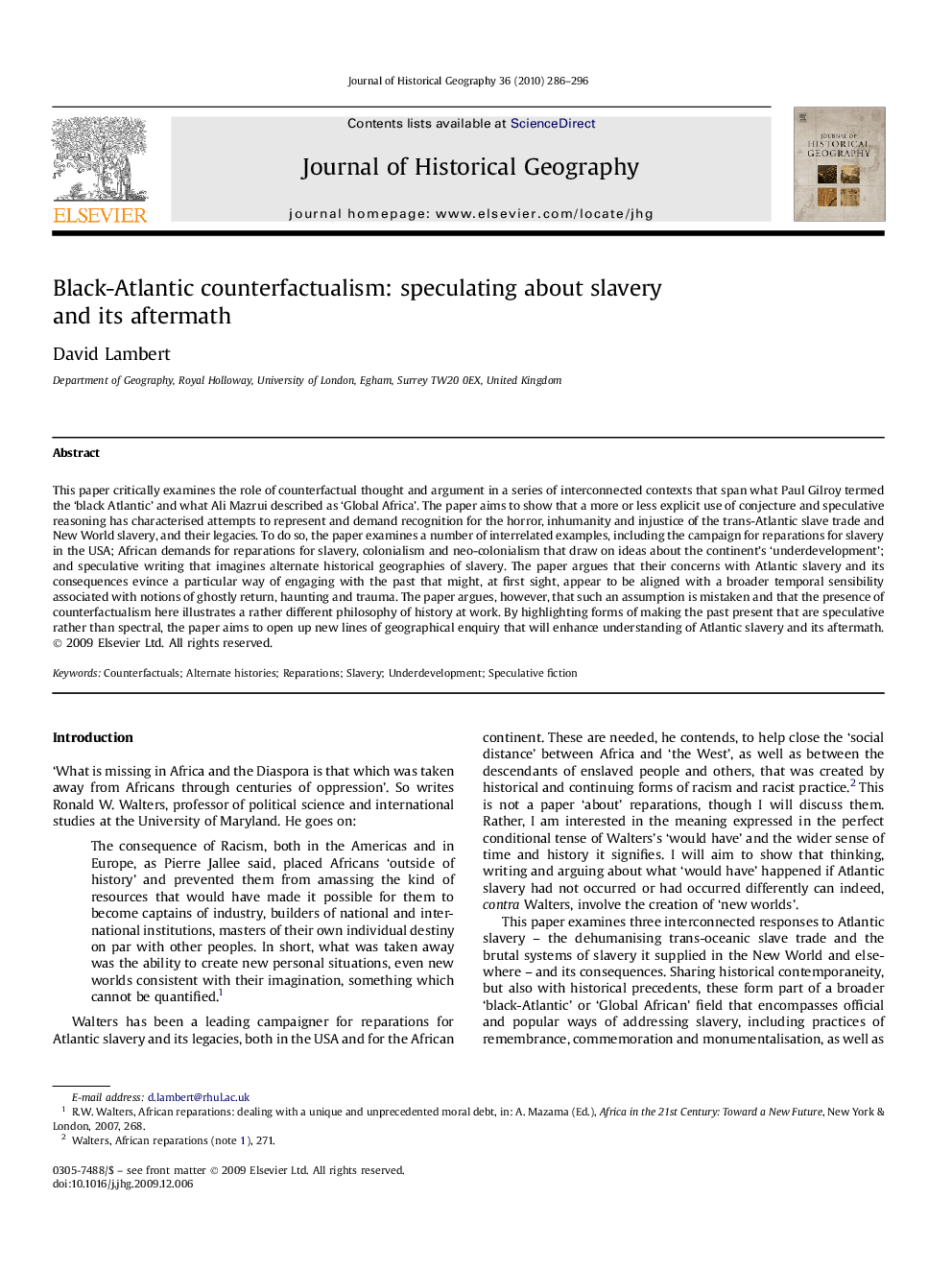| کد مقاله | کد نشریه | سال انتشار | مقاله انگلیسی | نسخه تمام متن |
|---|---|---|---|---|
| 1039242 | 944292 | 2010 | 11 صفحه PDF | دانلود رایگان |

This paper critically examines the role of counterfactual thought and argument in a series of interconnected contexts that span what Paul Gilroy termed the ‘black Atlantic’ and what Ali Mazrui described as ‘Global Africa’. The paper aims to show that a more or less explicit use of conjecture and speculative reasoning has characterised attempts to represent and demand recognition for the horror, inhumanity and injustice of the trans-Atlantic slave trade and New World slavery, and their legacies. To do so, the paper examines a number of interrelated examples, including the campaign for reparations for slavery in the USA; African demands for reparations for slavery, colonialism and neo-colonialism that draw on ideas about the continent's ‘underdevelopment’; and speculative writing that imagines alternate historical geographies of slavery. The paper argues that their concerns with Atlantic slavery and its consequences evince a particular way of engaging with the past that might, at first sight, appear to be aligned with a broader temporal sensibility associated with notions of ghostly return, haunting and trauma. The paper argues, however, that such an assumption is mistaken and that the presence of counterfactualism here illustrates a rather different philosophy of history at work. By highlighting forms of making the past present that are speculative rather than spectral, the paper aims to open up new lines of geographical enquiry that will enhance understanding of Atlantic slavery and its aftermath.
Journal: Journal of Historical Geography - Volume 36, Issue 3, July 2010, Pages 286–296